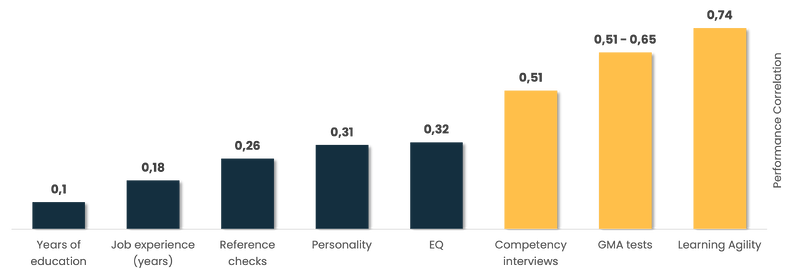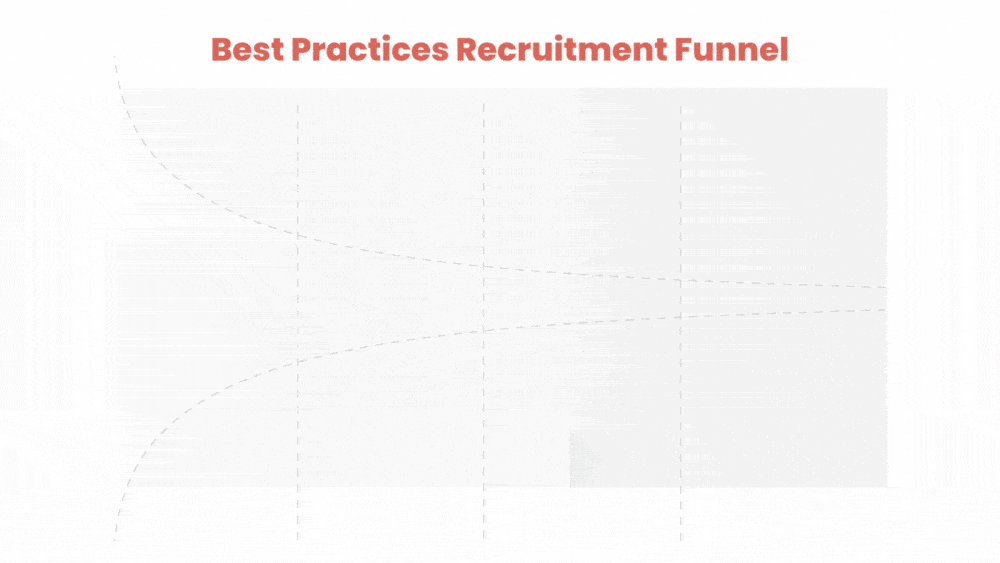Why are Psychometric Tests Essential to Hire Great People?
Psychometric assessments provide measurable and objective data that can be effectively utilised in the recruitment process. Stigmas regarding psychometrics stem from a misunderstanding of how they work. Any test that claims it could foretell the future warrants scepticism, as no crystal ball can foresee anything with certainty.
Psychometric tests are just a measuring tape based on statistics. They are assessments which numerically measure psychological qualities of people, and relay information regarding how statistically relevant those measurements are (for example, how accurate, relevant, repeatable, etc). Psychometric assessments commonly used by organisations include personality and cognitive ability tests.
The Considerations in Recruitment Decisions are Overwhelming
The recruitment process is a rich, multi-step affair, where numerous perspectives are gathered, balanced, and compared to decide whether or not to hire a candidate.
Cover letters, CVs, education, and references are the basics, followed by one-way video interviews, Zoom meetings, in-person interviews, assessments, simulations and practical exercises, to name a few. The process must also contend with the opinions, feelings, and inherent biases of stakeholders.
So, why are psychometric assessments necessary to hire the right people?
Valid and Reliable Insights are the Bedrock of Good Decisions
A significant body of research, with some studies spanning over 80 years, gives us guidance on how much to rely on each criteria used to make hiring decisions. These studies measure the relationship between these criteria and performance in the role, with a correlation of 0 implying no relationship and a correlation of 1 being a perfect predictor.

Psychological traits such as cognitive ability and learning agility predict job success strongly, with correlations to performance from 0.50 to 0.74.
Relying on cover letters, education, and experience feels the most natural because we are comfortable with these concepts in our daily lives. However, the wealth of data shows they have a paltry role to play when predicting job effectiveness.
The correlation between these concepts and the role success ranges between 0 to 0.20, indicating these are clearly not the best elements to overly depend on.
Based on the evidence, psychometric tests produce the most strongly predictive information in the interview process by far, with the best decisions being made when reliable data is available to support them.
Reliability is Created through Research and Validation
Well-constructed psychometric assessments rest on the foundation of substantial research efforts. Results are studied on a broad cross-section of people that covers all relevant demographic and socio-economic variables such as age, ethnicity, gender, and education.
Tests must be proven to produce relevant measurements and provide reliable, repeatable outcomes that are fair and non-discriminatory. The statistical accuracy of measurements is critical and must meet a high threshold, as the results form the input for decision-making. None of this rigour is available in the reading of a CV or through one human being interviewing another.
Objectivity Levels the Playing Field
The majority of steps within the traditional recruitment process are subjective. Even purported objective metrics such as education grades become biased when some schools are considered more worthy than others.
Due to their objective and structured nature, the outcomes of psychometric tests are not clouded by innate biases and interviewer preferences.
As results are equally and similarly applicable to each person measured, numerical comparisons can be made between candidates on like-for-like scales that can be objectively linked to the role's requirements.
Obtain Knowledge Upfront
Psychometric tests are designed to gather clear insights about people. Seemingly straightforward and short assessment rests on a substantial scientific effort. It is almost impossible to gain a comparable depth of insight into a candidate’s behaviours from a series of interviews, compared to what a short assessment can provide.
Obtaining these measurements upfront and taking them into a first interview transforms the interview from an initial cursory meeting into a deep and rich discussion guided by objective perspectives, with a focus on deepening insight into the most relevant areas.

The Qualities of Human Beings are Measurable
Psychometric tests measure what they set out to do, and only that. Knowing metrics about candidates' personality, mental ability, and other psychological concepts is inordinately valuable when considering a hire.
However, these results are in no way a complete depiction of a person. It is imperative to balance the objective perspectives from the data with the subjective human elements and demonstrated skill when making a final hiring decision. At the end of the day, all the science aside, you need to hire and work with a human being.

Author
Lumenii's team of expert psychologists regularly collaborate to share their ideas and knowledge. The latest case studies, thought leadership, and research.